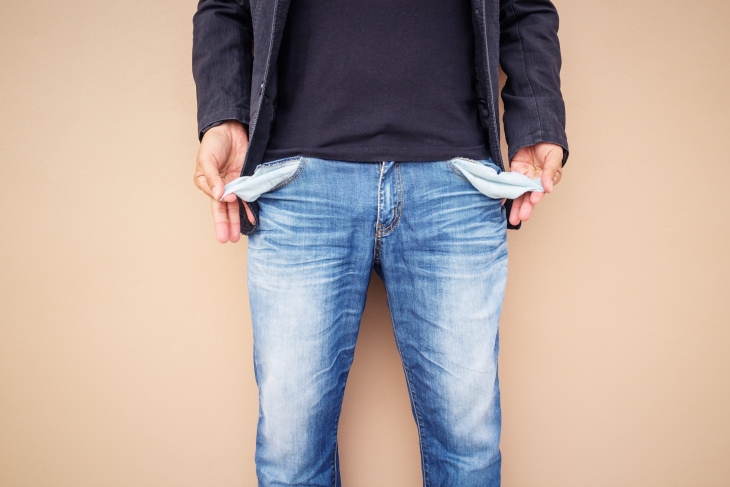
Rehab can be a life-saving step for someone suffering from substance use disorder (SUD). Treatment facilities range from detox and inpatient options to outpatient centers that let you live and work at home while you recover. Yet, the price of rehab often keeps people from seeking the critical support they need.
While the idea of free rehab is appealing, it’s important to understand that truly free treatment options can be limited. Still, you do have options.
As you prepare to take this next step, research available providers in your area and be prepared to explore various funding avenues. Additionally, seeking guidance from healthcare providers, social workers, or addiction specialists can also help you find affordable treatment options.
Professional detox programs provide medical oversight and emotional support that make recovery safer and more sustainable. Learn more about how this process works in our Guide to treatment & recovery.
Navigating Rehab Without Insurance
Accessing drug rehab without insurance can be challenging, but it’s not impossible. Although free rehab options are limited, there are various pathways to affordable or even no-cost treatment.
Many facilities offer sliding scale fees based on income, while government-funded programs and non-profit organizations provide support. Exploring these avenues and seeking guidance from healthcare professionals or social workers can help you find the right path to recovery.
Free or Low-Cost Rehab
The cost of rehab in the U.S. can vary widely, and many factors influence the final price. While some high-end facilities offer luxurious amenities and come with a hefty price tag, there are also affordable and even free options available.
Here are a few options for individuals looking for free or low-cost rehab:
- Government-Funded Programs: Many states offer government-funded rehab programs for those who qualify based on income and other factors.
- Non-profit Organizations: Some non-profit organizations provide free or low-cost rehab services, often relying on donations and grants.
- Sliding Scale Fees: Many rehab facilities offer sliding scale fees based on income, making treatment more accessible for those with limited financial resources.
Take the time to explore all available options and consider factors like insurance coverage and financial aid when seeking treatment.

The Cost of Avoiding Rehab
Research from the Substance Abuse and Mental Health Services Administration (SAMHSA) shows that around 24% (12.8 million people) suffering from SUD received substance use treatment in 2023.
Those people only reflect a small number of the total individuals who need treatment. People avoid treatment for many reasons, but one of the biggest hurdles is thinking that they can’t get into alcohol or drug rehab without insurance, or if they have other financial problems.
This hesitation applies to a large number of individuals suffering from addiction. Addiction and the behaviors that go along with it can have serious financial consequences—buying substances for regular use can be very expensive, as can problems resulting from substance abuse, such as car accidents or legal trouble. Furthermore, substance abuse often results in loss of income. Many individuals with SUD are already in debt before they realize they need help, and they’re afraid the cost of rehab will put them deeper into a financial hole.
Thankfully, getting into rehab with no insurance or no money is possible. You just have to know the ways to make addiction treatment affordable.
Substance abuse disorders are a common issue in the U.S. If your family member struggles, know you’re not alone. Some of the ways you can seek help include:
- Treatment: Options include inpatient rehab, outpatient therapy, and medication to manage withdrawal.
- Support: Group therapy, 12-step programs, and family therapy can make a difference.
- Online Resources: The National Institute on Drug Abuse (NIDA) and the SAMHSA National Helpline offer support and info.
Learn more about which drugs are most addictive in our Guide to treatment & recovery.
Together, you can help your loved one find recovery.
How to Get into Rehab with No Money Using Insurance
People with medical insurance may still worry about the cost of substance abuse treatment. This especially true if they don’t have a good income or are already deeply in debt. Many people don’t realize that most insurance plans provide coverage for addiction treatment programs, from inpatient residential facilities to outpatient day programs. Addiction treatment and prevention are also designated as essential health benefits that all insurance plans sold through the Healthcare Marketplace are required to cover.
Even private insurance plans usually cover substance abuse treatment. Insurance companies now recognize addiction as a treatable medical condition while also recognizing that untreated addictions can lead to a wide range of medical issues and expenses. This includes drug-related conditions, such as collapsed veins and infected heart valves due to IV drug use, and emergency room visits for accidents and overdose.
When you look at the big picture, insurance companies generate more profit by paying for quality addiction treatment instead of denying coverage. Turning someone away from finding the help they need may mean having to pay for the expensive medical complications that inevitably result from long-term drug and alcohol abuse.
Contact your provider to determine what kind of substance abuse treatment is covered by your insurance plan, or to find a treatment program that is partially or fully covered by your insurance. Addiction hotlines and rehab facilities can also help you determine insurance coverage.

How to Get into Rehab Using the ACA, Medicaid and Medicare
The Affordable Care Act (ACA) includes drug and alcohol addiction on its list of 10 essential health benefits. This means any policies sold through the ACA are required to cover addiction treatment, whether the insurance in question comes through the state health insurance exchange or through Medicaid.
Medicaid and Medicare are state and federally funded health insurance programs that provide low or no-cost substance abuse treatment. Medicaid and Medicare eligibility depend on the state you live in, and the rules can change from year to year. Don’t think that Medicaid or Medicare isn’t an option just because you were turned down before. Check to see if you are now eligible.
Despite the variations, there are some basic expectations included in these two programs. Anyone over 65 as well as and individuals with disabilities can qualify for Medicare. Medicaid supports low-income families as well as individuals who are in a certain income bracket, are pregnant or have young children, or are elderly or disabled. The expansion of the ACA requires Medicaid insurance to cover addiction treatment and recovery services, either in part or in full, although specific provisions vary by state.
How to Get into Rehab with No Money and No Insurance
There are ways to get into alcohol and drug rehab with no insurance, too. In addition to public assistance programs, some treatment centers and programs provide low or no-cost addiction treatment thanks to charitable contributions and/or state and federal funding.
Some facilities charge on a sliding scale, depending on your income and other factors and some facilities have no charge at all. The federal government supports addiction treatment centers through SAMHSA. This is a government agency that provides resources, services, information, and grants to enable substance abuse and mental health treatment centers help people who may not be able to afford the professional care they need.
Individual states set up and run their own rehab centers through various levels of government funding, as well as other funding sources, to provide low or no cost treatment to state residents struggling with addiction. They usually have specific requirements you must show for admission, such as:
- Presented information about the severity of addiction and substance abuse history
- Proof of U.S. citizenship or legal residence
- Proof of state residence
- Demonstrated inability to pay for other treatment due to lack of insurance or insufficient income
The greatest obstacle to getting treatment at a low or no cost rehab, regardless of whether it’s a private non-profit or a government-funded facility, is getting in. Most of these treatment centers have a waiting list, so you may not be able to check into rehab the moment you reach out for help.
Luckily, a number of these facilities offer outpatient services that can prevent wait-listed individuals from reaching a crisis point before a space opens up for them to check in.
To find out which agency is responsible for managing affordable facilities in your state, you can check SAMHSA’s Directory of Single State Agencies (SSAs).

Alternative Treatment Options
If you are waiting for a spot to open up in a low or no-cost rehab facility, or if you don’t believe that an intensive, inpatient program is what you really need, there are alternatives to rehab that can provide a great deal of help and healing to recovering addicts
Addiction support groups are a completely free way to explore your addiction issues and learn from other recovering addicts in an atmosphere of acceptance and understanding. The only requirement to join these groups is the desire to live a life free of substance abuse. The process of giving and receiving support within a community of people who truly understand what you are going through can be a big boost to anyone’s recovery.
Another alternative to checking into rehab takes a page from the kinds of therapies offered by facilities with a holistic approach to treatment. The philosophy of holistic treatment holds that to truly conquer addiction, you need to approach recovery by seeking to heal body, mind and spirit. Addiction is not just a physical issue, nor just a psychological one, but rather a disease that impacts every aspect of a person’s life and being.
Holistic treatment centers offer many therapeutic interventions that you could try outside of rehab, such as:
- Counseling: Many states offer free or low-cost counseling services that will allow you to discover and work on the underlying mental health issues contributing to your addiction.
- Yoga: This may seem like an option that is only available to the rich, but in fact, yoga is a healing, centering exercise that anyone can do with the help of library books and YouTube videos.
- Healthy habits: No matter how you are approaching your recovery process, healthy habits such as eating nutritionally rich food, getting quality sleep, and making time for regular exercise, are essential to healing the damage addiction has inflicted on your body and mind.
- Meditation and mindfulness: Those who find meditation good for their mental health often refer to it as a lifesaver, but even if you find meditation amplifies instead of reduces your stress, you can still benefit from mindfulness training designed to keep you grounded in the present moment
- Nature therapy: Some rehab programs offer horseback riding therapy, along with hiking and other nature-based forms of therapy. Contact with animals, whether direct interaction with a pet, or indirect interaction with animals at the zoo, as well as time spent communing with the great outdoors, are vastly healing activities. Learn more about Wilderness Therapy Programs.

Seeking Professional Treatment, No Matter Your Financial Situation
Maybe you think it isn’t worth the trouble to do all the research and fill out all the forms for getting into drug or alcohol rehab with no insurance or no money, but it is worth every bit of that effort and more. Treatment at a professional addiction treatment facility will give you a much better chance of recovering your health and reclaiming your life than any other approach to addiction recovery.
The fact is that addiction causes profound changes to brain chemistry and structure, which take a great deal of time and specialized treatment to heal. A qualified rehab center will keep you safe, help you heal, and make you much less likely to relapse.
Rehab can guide you safely through the detoxification process with as much comfort and healing as possible. It can be incredibly dangerous to detox on your own, partly because painful withdrawal symptoms will make you vulnerable to relapse. In addition, individuals who have particularly severe or long-standing addictions, or who abuse certain kinds of drugs, are at risk of developing withdrawal syndromes that can be fatal without swift emergency care.
Even if your drug of choice does not have life-threatening withdrawal symptoms, all withdrawal experiences are challenging, and you will be particularly vulnerable to relapse at this time. Having the oversight of a program to keep you on your recovery path will prevent setbacks. In addition, more fatal overdoses occur after detox than at any other time, because recovering addicts attempt to use at their customary dosage without realizing that their newly lowered physical tolerance has made that dosage fatal.
Another key aspect of treatment at a quality rehab facility is the intense focus on your addiction and the reasons behind it. Through one-on-one, group, and individual counseling sessions, you will begin to understand why you started abusing drugs or alcohol in the first place. This sort of self-discovery is essential for long-term recovery. Knowing the roots of your addiction issues will show you areas you need to address in your recovery, as well as prepare you to cope well with issues that might otherwise cause you to relapse in the future.
Rehab facilities can also provide you with aftercare support to promote a continuous, substance-free lifestyle. Recovery is not something you can take care of in a few days and be done with. It is an ongoing process of self-awareness and self-care. Time in a rehab center can help you plan for what comes next after treatment, as well as offer you resources to turn to in times of need.
